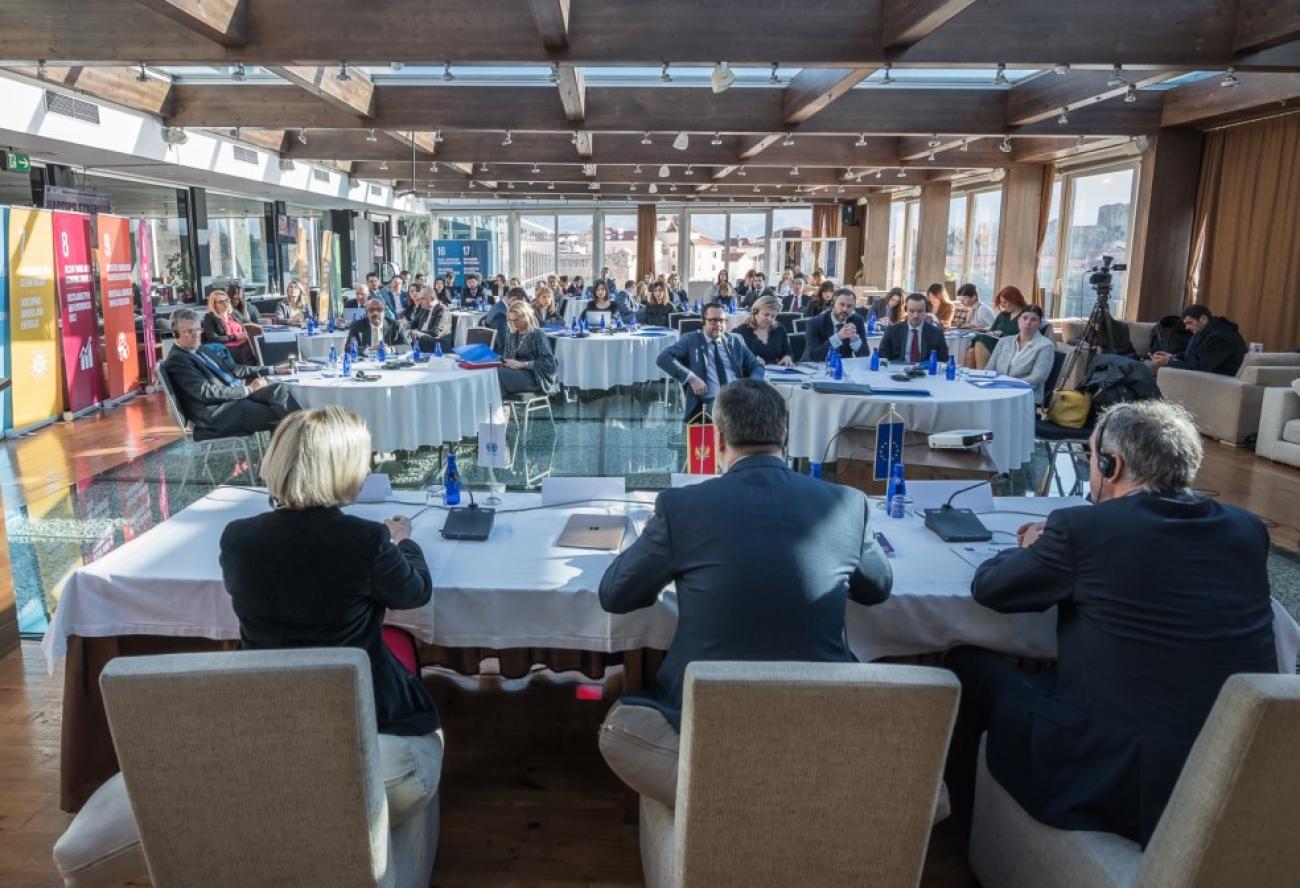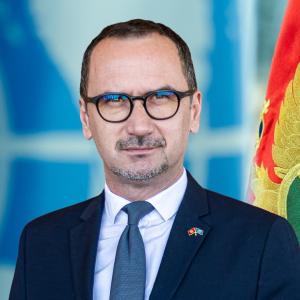Identifying synergies between two major development processes of Montenegro – EU accession and Agenda for Sustainable Development by 2030 was the central theme of a two-day meeting organized by the Ministry of European Affairs and the United Nations System in the country.
"Montenegro is among the first countries to fully define national response to all 17 Sustainable Development Goals," said Minister for European Affairs Aleksandar Andrija Pejović. He pointed out to clear link between the negotiation process and Agenda 2030 which is reflected through the National Strategy for Sustainable Development of Montenegro, but also through a number of negotiating documents.
"We do not want negotiating process to be just a time race or “ticking box“ set of activities. We want to do it thoroughly, taking in consideration the Sustainable Development Goals, so we could properly prepare Montenegro to be a member state of the EU which contributes to the realization of the Agenda for Sustainable Development by 2030," said Minister Pejović.
"We do not want negotiating process to be just a time race or “ticking box“ set of activities. We want to do it thoroughly"
Aleksandar Andrija Pejović, Minister for European Affairs
The workshop gathered representatives of the Montenegrin negotiating structure - negotiators, heads and secretaries of working groups for negotiation chapters, head of the negotiating structure of Serbia, representatives of the EU Delegation in Montenegro, as well as representatives of the United Nations System in Montenegro. The two-day work focused on identifying common dynamics and deep links between negotiation chapters and SDG targets, as well as common goals of two processes, unveiled high level of complementary of two development agendas. Participants specially reviewed instruments that could bring two development processes further closer and which could also strengthen their implementation.
As said by Herman Spitz, the Head of Cooperation Section at the EU Delegation to Montenegro, the EU recognized the importance of the Agenda for Sustainable Development in ensuring a quality life and a sustainable future for all people. Spitz reminded that the EU contributes in two ways to achieving the Agenda 2030 - by integrating Sustainable Development Goals into the European policy framework and through EU’s work on implementation of the Agenda 2030 which will begin as of 2020. He said that Member States must work together with the EU to ensure the implementation of policies at the national level. He welcomed the approach of Montenegro, which takes its activities towards EU membership as one segment of an adequate response to Agenda 2030 at the national level.
"The conclusions we have reached during these two days will certainly help further harmonization of two development processes"
Fiona McCluney, the UN Resident Coordinator in in Montenegro
"The main goal of both agendas is to improve the quality of life of the citizens of Montenegro. Therefore, the synchronization of two strategic agendas is essential and the conclusions we have reached during these two days will certainly help further harmonization of two development processes, given that we have managed to clearly identify compatibility areas, cross-section points, resource optimization options, space for policy advancement, but also some unused opportunities," said Fiona McCluney, the UN Resident Coordinator in in Montenegro.
Accession to the European Union is a key development priority for Montenegro. At the same time, Montenegro, as one of the 193 UN member states, adopted the Agenda for Sustainable Development by 2030 based on 17 Sustainable Development Goals. The country is strategically committed to integrating the Sustainable Development Goals into national policies in order to speed up the process of accession to the European Union.
The event was organized within the framework of the global process of integrating SDGs into national policies called Mainstreaming, Acceleration and Policy Support (MAPS), supported by the UNDP Regional Center in Istanbul.



















